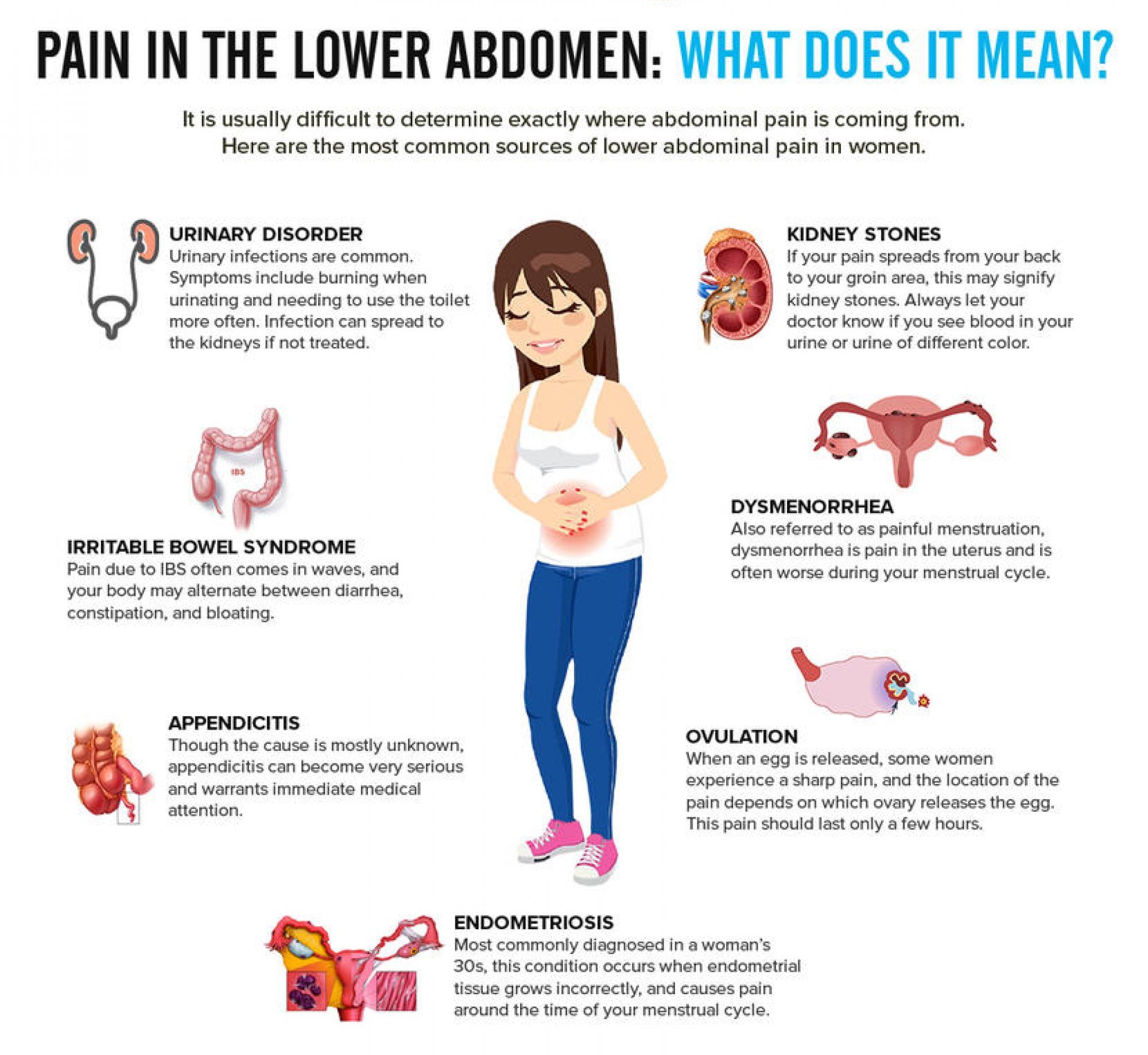Introduction to Belly Rumbles

Ever found yourself in a quiet room, only to be interrupted by the loud growl of your stomach? Those curious sounds, often referred to as belly rumbles, are more than just embarrassing moments. They’re natural signals from our bodies! In this post, we’ll explore what causes these noises and how to manage them effectively, so you can feel confident in any situation.
Also Read This: What Is the Rumble Ghost and Can You Hear It? Exploring the Phenomenon
Common Causes of Belly Rumbles

Belly rumbles, or borborygmi, can happen to anyone at any time. Here are some common reasons why your stomach might be performing its own soundtrack:
- Hunger: The most typical cause, hunger rumbles occur when your stomach is empty. As your digestive system prepares for food, it produces noises that can be quite loud.
- Digestion: After eating, your stomach and intestines are hard at work breaking down food. This process can create gurgling sounds as gas and fluids move through your digestive tract.
- Gas Buildup: If you’ve ever eaten beans or carbonated drinks, you might be familiar with the resulting gas. Those bubbles making their way through your intestines can lead to some serious rumbles!
- Food Intolerances: Certain foods can cause discomfort and noise if your body struggles to digest them. Lactose intolerance is a common example where dairy leads to audible digestive issues.
- Stress and Anxiety: Believe it or not, your emotional state can affect your digestion. Stress can trigger the release of certain hormones, increasing gut activity and leading to more noises.
Understanding these common causes can help you manage belly rumbles. Remember, they’re a natural part of how our bodies communicate. If you notice they happen frequently or are accompanied by pain, it might be worth a visit to a healthcare professional.
Also Read This: How Do I Watch Rumble? Exploring Ways to Access Rumble’s Content
3. How Digestive Processes Lead to Belly Rumbles

Ever found yourself in a quiet room, only to be interrupted by a loud rumble from your stomach? It’s a common experience, and it's not just your tummy trying to steal the spotlight! Understanding how our digestive processes lead to these noises can shed some light on our body's inner workings.
Belly rumbles, or borborygmi (what a fancy term!), are primarily caused by the movement of gas and fluids in our intestines. Here’s a breakdown of how this happens:
- Swallowing Air: When you eat or drink, you also swallow air, which can build up in your digestive tract.
- Peristalsis: This is the wave-like muscle contractions that move food through your digestive system. As food travels down, it creates movement that can produce sounds.
- Digestion: As food breaks down, gas is produced as a byproduct. This gas can lead to rumbling sounds as it moves along.
- Empty Stomach: When your stomach is empty, it can produce more pronounced sounds as the digestive system still churns in anticipation of food.
Isn’t it fascinating how our bodies communicate? But it’s not just about the sounds. Rumbles might signal that it’s time for a snack or meal, or they might indicate that your digestive system is busy processing what you just ate. Sometimes, they can be louder after consuming certain foods, especially those high in fiber or gassy foods like beans, broccoli, or carbonated beverages. So, if you hear your belly rumbling after enjoying a hearty plate of chili, now you know why!
While these noises can be amusing, they can also be annoying. If you frequently find yourself in situations where your stomach is talking louder than you’d like, consider timing your meals appropriately or being mindful of what you consume beforehand.
Also Read This: How to Earn Money in Rumble and Start Your Journey Toward Financial Success
4. When to Worry About Belly Rumbles

While belly rumbles are typically normal, there are times when they might raise a flag of concern. It’s essential to listen to your body, and sometimes, those gurgles can signal that something might not be quite right.
Here are some signals to look out for:
- Persistent Pain: If your belly rumbles are accompanied by severe or persistent abdominal pain, it’s best to consult a healthcare professional.
- Diarrhea or Constipation: Frequent rumbles along with changes in bowel habits could indicate an issue like irritable bowel syndrome (IBS) or other digestive disorders.
- Nausea or Vomiting: If you're feeling queasy or have been vomiting alongside those sounds, it might be a sign of something more serious.
- Unexplained Weight Loss: Losing weight without trying can be a red flag, especially if it accompanies digestive noises.
It’s worth noting that some sounds can be harmless—like after a meal when your digestive system is working hard! However, if your belly sounds are frequent and come with discomfort or other symptoms, don’t hesitate to reach out to a healthcare provider. They can help identify whether it’s a simple case of “just digestion” or something that needs further investigation.
In conclusion, while belly rumbles are usually nothing to worry about, being aware of your body and how it reacts can help you maintain your digestive health. If you ever feel uncertain, trust your instincts, and don’t hesitate to seek advice!
Also Read This: How Much Are Tickets to the Royal Rumble? Pricing Information
5. Effective Management Strategies for Belly Rumbles
Experiencing belly rumbles can be a bit embarrassing, especially in quiet settings. But fear not! There are several effective strategies that can help manage and minimize those noisy tummy sounds.
1. Mindful Eating: One of the best ways to keep your belly quiet is by being mindful of how you eat. Take your time with meals. Chewing slowly not only helps your digestion but also reduces the amount of air you swallow, which can contribute to noise.
2. Portion Control: Overeating is a common culprit of belly rumbles. Instead of loading your plate, try smaller, more frequent meals. This approach not only helps your digestive system but also keeps you feeling energized throughout the day.
3. Staying Hydrated: Drinking enough water is crucial for effective digestion. Aim for at least eight glasses of water a day. However, be cautious about drinking too much during meals, as this can dilute your stomach acids and lead to more noise.
4. Regular Physical Activity: Engaging in regular exercise can improve your overall digestive health. Activities like walking, yoga, or even light stretching help stimulate your digestive system, reducing the chances of excessive gurgling.
5. Stress Management: Stress can significantly impact your digestive system, leading to increased stomach activity and, consequently, rumbles. Incorporating relaxation techniques such as meditation, deep breathing, or even journaling can help calm both your mind and your belly.
Remember, while belly rumbles can be annoying, they are often harmless. If you consistently experience discomfort or if the rumbles escalate into pain, it's wise to consult with a healthcare professional.
Also Read This: How to Get More Characters in My Hero Ultra Rumble Unlocking Heroes
6. Dietary Changes to Reduce Belly Rumbles
Your diet plays a significant role in how your digestive system functions and, consequently, how often those belly rumbles make an appearance. Here are some dietary changes you can implement to keep the sounds at bay:
- Limit Gas-Producing Foods: Certain foods are known to increase gas production, leading to more belly noises. These include:
- Beans and lentils
- Cruciferous vegetables (like broccoli and cabbage)
- Carbonated drinks
- Incorporate Probiotics: Foods rich in probiotics, such as yogurt, kefir, and sauerkraut, can improve gut health. A healthier gut often translates to fewer rumbles!
- Choose Easily Digestible Foods: Opt for foods that are gentle on your stomach. Examples include:
- Rice
- Bananas
- Applesauce
- Avoid Artificial Sweeteners: Many people find that artificial sweeteners, like sorbitol and mannitol, can cause digestive discomfort. Check labels and consider cutting back.
- Track Your Food Intake: Keeping a food diary can help you identify specific foods that trigger rumbling in your stomach. Once you identify the culprits, you can adjust your diet accordingly.
Making these dietary changes may take some time, but your belly will thank you for it! With a little patience and experimentation, you can find a diet that keeps those rumbles to a minimum and helps you feel your best.
Also Read This: Why Is My Belly Rumbling? Understanding Hunger Cues and Digestion
7. Home Remedies for Managing Belly Rumbles
If you're experiencing those pesky belly rumbles, don't worry! There are several home remedies that can help soothe your stomach and reduce that embarrassing rumbling. Here are some tried-and-true methods to consider:
- Ginger Tea: Ginger has natural anti-inflammatory properties that can help calm your digestive system. Simply steep fresh ginger slices in hot water for about 10 minutes, strain, and sip. It’s soothing and can help reduce gas.
- Peppermint: Peppermint tea is another great option. The menthol in peppermint can relax your digestive tract and ease bloating. Brew a cup of peppermint tea, sit back, and relax!
- Warm Compress: Applying a warm compress to your stomach can relieve discomfort and may help quiet those rumbles. Just soak a cloth in warm water, wring it out, and place it on your belly for about 15-20 minutes.
- Probiotics: Incorporating probiotics into your diet can improve gut health and reduce bloating. Foods like yogurt, kefir, and sauerkraut are great sources. You might also consider a probiotic supplement.
- Stay Hydrated: Sometimes, belly rumbling is related to dehydration. Make sure you’re drinking enough water throughout the day. Herbal teas and broths can also count!
- Mindful Eating: Slow down while you eat. Chewing your food thoroughly and taking your time can help reduce the amount of air swallowed, which may cut down on gas and rumbling.
- Fennel Seeds: Chewing on fennel seeds after meals can aid digestion and help with gas. They have a sweet flavor, making them a pleasant after-meal treat!
Give these remedies a try next time your stomach starts to grumble. Not only can they help, but they’re also simple and easy to incorporate into your daily routine. Remember, everyone’s body is different, so it might take some experimentation to find what works best for you!
8. When to Consult a Healthcare Professional
While belly rumbles are usually harmless and common, there are times when you should definitely seek medical advice. Here are some signs that it might be time to reach out to a healthcare professional:
- Persistent Symptoms: If your belly rumbles are accompanied by other symptoms like severe pain, bloating, or changes in bowel habits that persist for more than a few days, it’s worth getting checked out.
- Unexplained Weight Loss: If you’re losing weight without trying, this could indicate an underlying issue that needs attention. Don’t hesitate to speak with your doctor.
- Blood in Stool: Seeing blood in your stool or experiencing black, tarry stools can be a sign of a serious condition. This is a red flag that warrants immediate medical attention.
- Severe Diarrhea or Constipation: If you’re experiencing diarrhea or constipation that lasts more than a couple of days, consult a healthcare professional to rule out any gastrointestinal disorders.
- Fever: A fever along with your digestive symptoms could suggest an infection or other serious condition. Make an appointment to discuss your symptoms.
- Severe or Prolonged Pain: If you’re experiencing severe abdominal pain that doesn’t go away or gets worse over time, it’s essential to seek medical advice.
Always trust your instincts—if something feels off, it’s better to be safe and consult with a healthcare professional. They can provide guidance, conduct any necessary tests, and help you find the best treatment options for your specific situation.
 admin
admin








